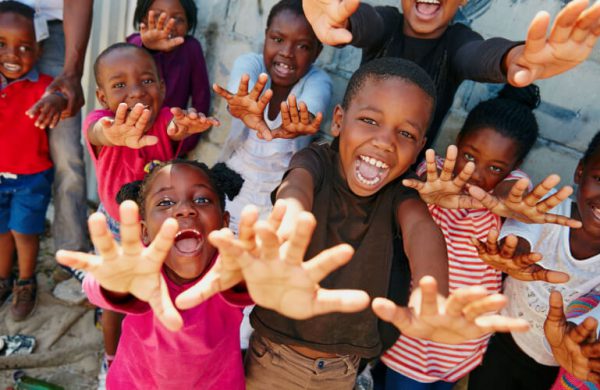Tanzania, the land of breathtaking landscapes, captivating wildlife, and rich cultural heritage, also harbors a hidden struggle – the persistent challenge of gender inequality. While Tanzania boasts economic growth and tourism success, these advancements haven’t reached all members of society equally. Women, who form the backbone of the nation’s social fabric, continue to face significant hurdles in education, economic empowerment, and personal safety. This applies particularly to women in the rural areas of Tanzania.
Education: An Uneven Path
Tanzania has made strides in increasing primary education enrollment for girls. However, the journey to secondary education remains fraught. Societal pressures often push girls towards early marriage or domestic responsibilities, leaving them with limited opportunities for intellectual growth. This lack of education restricts their career prospects and perpetuates the cycle of poverty.
The Economic Glass Ceiling
Women in Tanzania contribute significantly to the informal sector, running small businesses and engaging in agricultural work. They are the market vendors, the small-scale farmers, and the backbone of the informal economy. However, formal employment remains elusive for many. Cultural norms often dictate that men manage finances, limiting women’s access to loans and hindering their entrepreneurial potential. The gender pay gap is another harsh reality, with women earning significantly less than men for the same work. This economic disparity not only limits their own well-being but also restricts their ability to invest in their children’s education and healthcare, perpetuating the cycle of inequality for generations.
Violence: A Shadow Cast
Gender-based violence is a pervasive issue in Tanzania. Domestic abuse, sexual harassment, and female genital mutilation (FGM) are deeply concerning realities. The lack of legal recourse and societal stigma surrounding these issues often leave women silenced and vulnerable. Fear of violence can restrict their movement, limit their ability to participate in economic activities and stifle their voices in the community.
Breaking the Barriers
Despite the challenges, Tanzanian women are not passive victims. They are advocating for change on multiple fronts. Grassroots movements are raising awareness about gender equality and mobilizing communities. Women entrepreneurs are forming cooperatives to access resources and support each other. Activists are lobbying for legislative reforms that protect women’s rights and hold perpetrators of violence accountable.
We Can Make a Difference
We, communities, organizations, and individuals, can all play a role in empowering women. This can involve supporting initiatives that provide vocational training and financial literacy programs, equipping women with the skills and knowledge to navigate the formal economy. We can advocate for stricter enforcement of laws against violence and support organizations that provide safe spaces for women to report abuse and seek legal aid.
Empowering women in Tanzania requires a multi-faceted approach that tackles social, economic, and educational barriers. Here are some key areas where efforts can be directed:
Education and Skills Development
- Increased access to quality education: Investing in girls’ education is crucial. This includes removing financial barriers to schooling and promoting programs that keep girls engaged, especially in STEM fields.
- Vocational training and skills development programs: Equipping women with marketable skills allows them to participate in the workforce, gain financial independence, and build self-confidence.
Economic Empowerment
- Microfinance initiatives: Providing women with access to small loans and financial literacy training can empower them to start businesses or expand existing ventures.
- Market access and business development support: Connecting women entrepreneurs with markets, mentorship programs, and resources can help their businesses thrive.
- Land ownership rights: Ensuring women have legal ownership of land is crucial for economic security and agricultural productivity.
Health and Reproductive Rights
- Improved access to healthcare: Investing in healthcare infrastructure and personnel, particularly in rural areas, ensures women receive quality medical care, including reproductive health services and family planning options.
- Combating gender-based violence: Addressing violence against women and girls through education, legal reform, and support services creates a safer environment for them to flourish.
Shifting Social Norms
- Community awareness campaigns: Promoting gender equality and challenging traditional gender roles through education and public awareness campaigns can lead to a more supportive environment for women.
- Engaging men and boys: Including men and boys in conversations about gender equality is crucial for achieving lasting change.
- Role models and leadership opportunities: Highlighting successful women in business, politics, and other fields can inspire future generations of female leaders.
Additional Considerations
- Support for local organizations: Partnering with existing women’s rights organizations in Tanzania ensures initiatives are culturally relevant and address the specific needs of the communities they serve.
- Technology and innovation: Leveraging technology to provide educational resources, financial services, and healthcare information in remote areas can broaden women’s access to opportunities.
- Data collection and analysis: Collecting data on the challenges faced by women in Tanzania allows for targeted interventions and tracks progress in achieving gender equality.
By working together, local and international organizations, the government, and communities can create an environment where women in Tanzania have the resources, opportunities, and support they need to reach their full potential.
The Road to Equality
The journey towards gender equality in Tanzania is long and arduous. Shifting deeply entrenched cultural norms requires a multi-pronged approach. Increased access to education for girls, stricter enforcement of laws against violence, and economic empowerment initiatives are crucial steps. By investing in the potential of its women, Tanzania can unlock its true potential and build a more equitable future. A future where women can reach their full potential, contribute fully to society, and raise their daughters in a world free from discrimination and violence. This future won’t be built by waiting on the sidelines. It will be built through collective action and our commitment to dismantling the barriers that hold Tanzanian women back.
For Women Like You International is on a mission to uplift the Tanzanian women. Explore our website to learn how you can support us!


